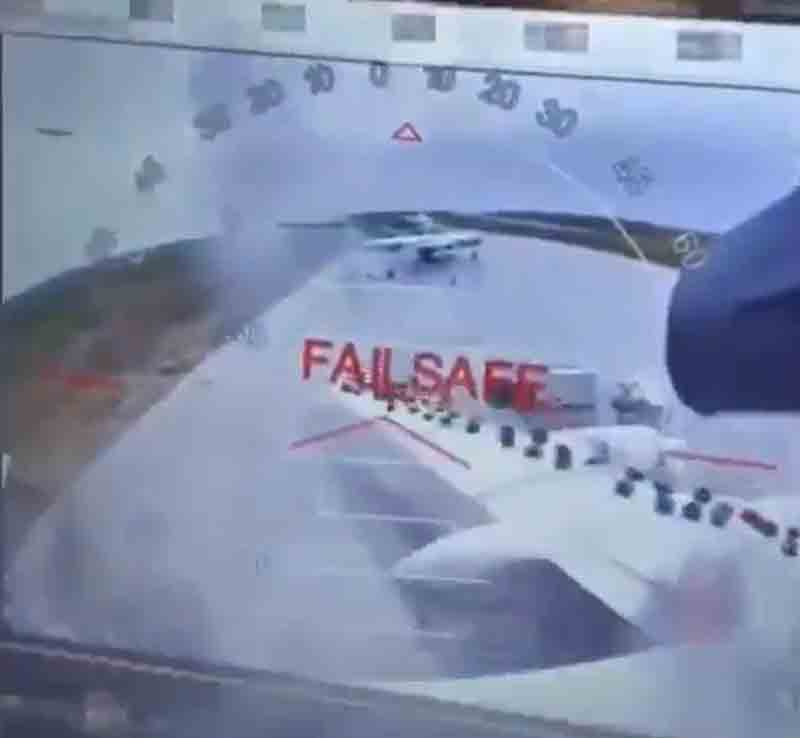It was already difficult to envision a breakthrough resulting from the renewed direct talks between Russia and Ukraine scheduled to take place in Istanbul on Monday. However, following what seem to be multiple large-scale Ukrainian drone strikes targeting strategic bases throughout Russia, it is even less probable that either side will be willing to alter their red lines.
Prior to the recent strikes, which aimed at Russian strategic aircraft located thousands of miles from the Ukrainian border, the Kremlin had refrained from formally outlining, through an agreed memorandum, what it specifically desires in exchange for concluding what it terms its ‘Special Military Operation’. Nevertheless, Russian officials have been transparent about their stringent demands, which include sovereignty over all annexed territories, the demilitarization of Ukraine, immediate relief from sanctions, and what the Kremlin refers to as ‘de-Nazification’, which encompasses ensuring the rights of Russian speakers.
Concerns regarding further NATO expansion towards Russian borders – particularly with respect to Ukraine, as well as other nations – have consistently been a point of contention for the Kremlin, alongside the issue of hundreds of billions of dollars in frozen Russian assets overseas. Speculation has arisen in both Russian and Western media regarding potential negotiation areas, and the results of the Istanbul discussions are being closely monitored for any signs of flexibility.
However, in light of what seems to be a remarkable Ukrainian achievement, discussions of Kremlin concessions may currently be off the table. Ukraine enters this second round of direct negotiations strengthened by its apparent success in destroying Russian strategic bombers and other vital air assets. On Sunday, President Volodymyr Zelensky articulated some of Ukraine’s positions, which include an unconditional ceasefire and the repatriation of Ukrainian children taken to Russia.
However, Russia’s insistence that Ukrainian forces retreat from territories it claims but has yet to conquer remains unacceptable, especially now that Ukraine has demonstrated its capability to strike deep behind enemy lines.
Prior to the recent Ukrainian drone attacks, and while preparations for peace talks in Istanbul were underway, Russia intensified its assaults on Ukraine, indicating the potential onset of a new summer offensive. On Saturday night, Russia executed its most extensive drone assault on Ukraine since the war began, deploying 472 drones.
The following day, a Russian missile strike resulted in the deaths of at least 12 individuals and left over 60 injured at a Ukrainian military training facility. Amid these developments, a visibly frustrated US President Donald Trump, who previously claimed he could swiftly resolve the Ukraine conflict, now finds himself observing from the sidelines as a key aspect of his foreign policy appears increasingly unstable.
Neither his pressure on the Ukrainian president, whom Trump criticized in the Oval Office, nor his recent admonishments directed at the Kremlin leader seem to have brought the two parties any closer to achieving a peace agreement. Trump still possesses significant options to influence the situation if he decides to act, such as implementing stringent new sanctions, which have garnered overwhelming support in the US Senate, or modifying US military assistance in a manner that would substantially raise the costs of continued fighting. While these actions may not be conclusive, they would convey a strong message of US commitment.
What Trump claims he is tempted to do, however, is simply abandon the entire situation. He asserts that this is Biden’s war, or that of Putin and Zelensky. Yet, walking away – and the implications of that for US policy remain uncertain – may no longer be feasible. At least not without consequences.
His persistent call for an end to the Ukraine conflict, coupled with his direct engagements with both Ukrainian and Russian leaders, signifies that Trump and the United States are now deeply intertwined with the outcome. This is why developments on the battlefield and at the negotiating table in Istanbul are being monitored so intently.
Despite his frequent efforts to distance himself from it, the Ukraine war has undeniably become Trump’s war, and US credibility now hangs by a precarious thread.
Discover more from Defence Talks | Defense News Hub, Military Updates, Security Insights
Subscribe to get the latest posts sent to your email.





